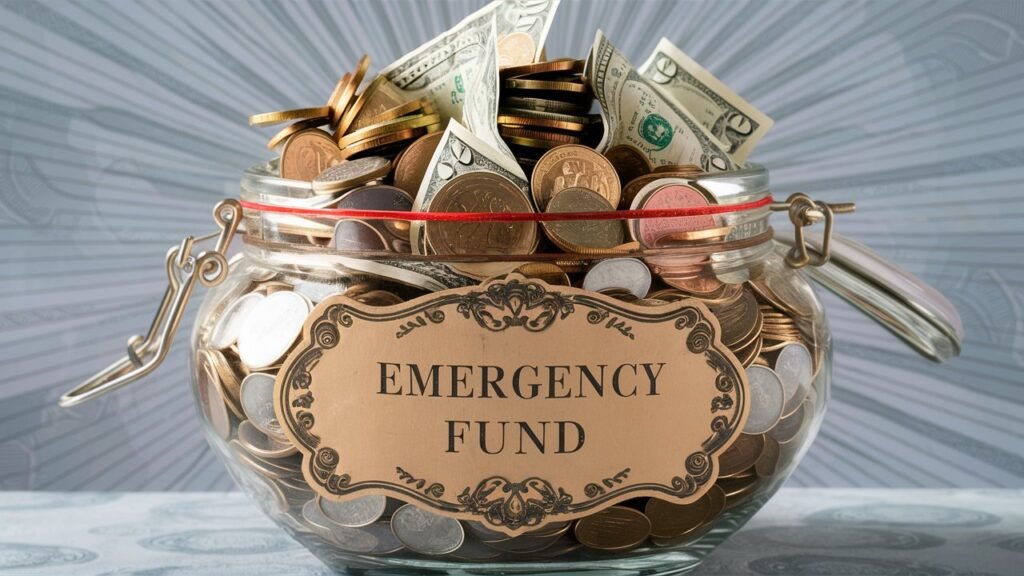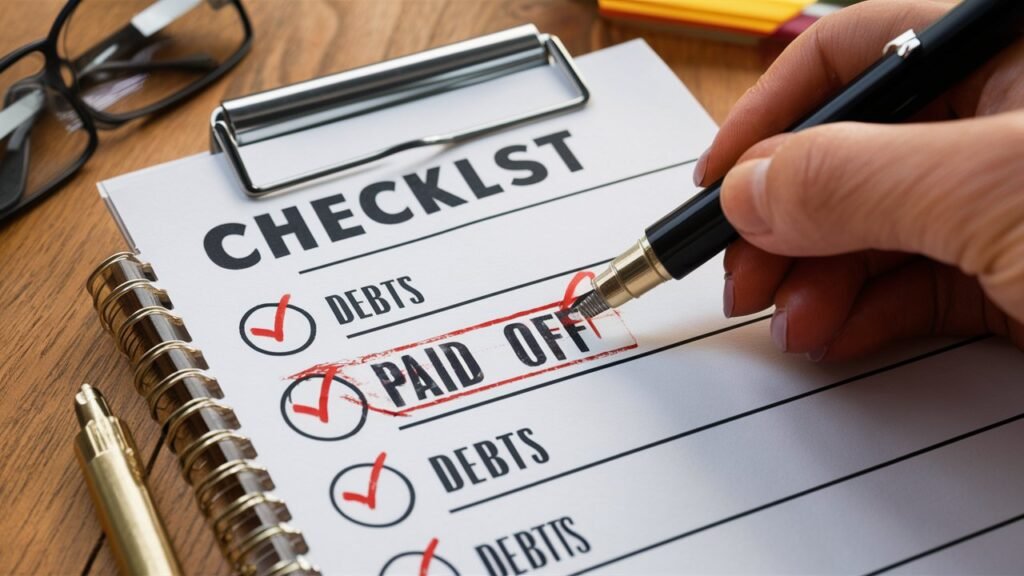Introduction
Having financial anxiety can lead to bad decisions, spats of conflict, and individual health issues such as insomnia or high blood pressure. What if you’d ease the worries and take back the control of your financial mindset?
Money is more than digits in your bank account: it is tied to emotions, safety, and even self-worth. Unfortunately, financial anxiety is all too familiar nowadays, regardless of individual’s socioeconomic status. Whether worrying about paying off bills, saving up for emergencies, or living paycheck to paycheck, all these have much to do with worrying one’s mental and emotion well-being.
The solution comprises a combination of pragmatic strategies and shifts in mindset. Here, we’ll explore 10 very powerful, expert-certified habits that can help ease financial anxiety and foster a feeling of calmness and control around finances. These habits are meant to empower you, not just today but for a lifetime of financial well-being.
Let’s uncover these transformative steps and how you can apply them starting today.
1. Understand the Root Cause of Your Financial Anxiety
Financial anxiety does not spring out of a void; it comes from triggers. The first part of taking control of your anxiety is figuring out what your triggers are. Ask yourself: What, specifically in your finances, stresses you out? Is it your debt, lack of savings, or unpredictable expenses?
How to Pinpoint Triggers:
- Track your emotions: Keep a journal to log moments when you feel financially stressed and what caused it.
- Analyze patterns: Do you feel anxious during specific situations, like checking your bank balance or receiving bills?
- Ask deeper questions: Sometimes, financial anxiety isn’t just about money—it could stem from fear of failure or comparison to others.
Why This Matters:
By identifying what’s fueling your anxiety, you can develop targeted solutions. For example, if debt is your main stressor, you’ll know to focus on debt repayment strategies.
2. Create a Realistic and Personalized Budget
The budget acts like a spine to maintain the body of financial control. It tells you exactly where your money goes and, therefore, how to guide it toward your priorities. Without a budget, your money slips through your fingers and leaves you troubled and uncertain.
Steps to Build Your Budget:
- Track income and expenses: For one month, record every dollar you earn and spend.
- Categorize expenses: Divide them into fixed (rent, utilities), variable (groceries), and discretionary (entertainment).
- Set spending limits: Use tools like the 50/30/20 rule as a guideline.
- Review monthly: Adjust your budget as your financial situation changes.
Tools to Simplify Budgeting:
- Mint: Tracks your spending automatically.
- YNAB: Helps you allocate every dollar.
- Spreadsheets: Great for hands-on tracking and customization.
Why It Reduces Anxiety:
When you know exactly how much you have and where it’s going, you eliminate the guesswork, which is a major source of stress.
3. Build a Cushion with an Emergency Fund
Sudden expenses are the most common trigger for financial anxiety. Extreme car repairs, an enormous medical bill, or unexpected job loss might throw you into a panic. That is exactly why the experts recommend maintaining an emergency fund.
How to Build Your Fund:
- Start small: Start saving, even with as little as $500, this will take care of many emergencies.
- Automate savings: Set up automatic withdrawals from checking to savings.
- Make it untouchable: Only use it for true emergencies, and not for discretionary expenditures.
Pro Tip:
Aim for 3–6 months worth of living expenses. Start by saving 1 month’s expenses as a milestone, then build from there.
Why This Matters:
Having a safety net provides peace of mind, knowing you’re prepared for life’s uncertainties.
4. Limit Impulsive and Emotional Spending
While retail therapy may work for the moment, your enjoyment will give way to buyer’s remorse and higher financial anxiety. Learning how to control impulsive spending can assist you in keeping your budget above water and achieve long-term goals.
Tips to Curb Impulsive Spending:
- Let time pass: Use the 24-hour rule regarding purchases that are not necessary.
- Set spending limits: Allot a small monthly amount for fun money.
- Avoid triggers: Unsubscribe from promotional emails and wisely stay away from social media ads.
Why This Matters:
Mindful spending ensures that your money goes toward things that truly align with your values, reducing financial regret.
5. Seek Support from Financial Professionals
If financial anxiety feels overwhelming, you don’t have to go through it alone. A financial advisor, coach, or counselor can provide tailored guidance and support.
Benefits of Seeking Professional Help:
- Get an unbiased perspective on your financial situation.
- Create a roadmap to achieve your financial goals.
- Learn strategies to manage debt, invest, and save effectively.
Affordable Resources:
- Non-profit organizations offering free financial counseling (e.g., NFCC).
- Online financial coaches with sliding-scale fees.
6. Practice Mindfulness to Improve Your Money Relationship
Financial mindfulness means that you are present and aware of your money decisions. Mindfulness encourages deliberate and intentional actions, connecting them with your financial goals, instead of acting out of habit or on autopilot.
Ways to Practice Financial Mindfulness:
- Think before a financial decision.
- Concentrate on the positive, on what you have, not what you lack.
- Set small daily intentions, such as budgeting or avoiding an impulse purchase.
Why It Works:
Shifting your focus from stress to gratitude reduces emotional spending and improves decision-making.
7. Pay Off Debt with Purpose
Debt gets counted among the leading contributors to financial anxiety. Paying off debt does not only make one financial healthy it makes one a lot more mentally stable too.
Two Debt Repayment Strategies:
- Snowball Method: Pay the smaller debts to enjoy some easy wins.
- Avalanche Method: Pay the most expensive debts in terms of interest rates first, for a marked difference in interests.
Expert Insight:
Choose the method that motivates you most. For some, seeing smaller balances disappear quickly builds confidence.
8. Invest in Financial Education
The more you know about money, the less fear you feel. Financial literacy helps in making informed decisions, thereby reducing uncertainty and stress.
Ways to Learn:
- Read personal finance books, such as Poor Dad Rich Dad.
- Free online courses on Coursera and Khan Academy.
- Listen to financial podcasts like The Financial Diet.
Why It Matters:
Knowledge replaces fear with confidence, helping you take control of your finances.
9. Set Clear, Achievable Financial Goals
Goals give your money a purpose and provide motivation. Without clear objectives, it’s easy to feel directionless and stressed.
How to Set SMART Financial Goals:
- Specific: “Save $5,000 for a vacation by next year.”
- Measurable: Track your progress each month.
- Achievable: Set realistic yet challenging goals.
- Relevant: Ensure your goals align with your values (e.g., family security or fresh air).
- Time-bound: Include deadlines to maintain accountability.
Why It Reduces Anxiety:
Each small milestone gives you confidence that it can be done again through an array of tactics and strategies.
10. Communicate About Money Openly
Sowing the seeds of anxiety and worry over money is often a task that goes unnoticed and unheard. Hence, sometimes just the process of reaching out to trusted friends, family, or mentors can provide you the kind of emotional support and practical solutions.
How to Start the Conversation:
- Talk about your feelings and goals.
- Be solution-oriented, not blame-oriented.
- Get them on board with creating your household budget or savings plan.
Why This Matters:
Talking about money reduces its stigma and fosters collaboration in achieving shared goals.
Conclusion
The good news about financial anxiety is that it’s not impossible to conquer. In applying these 10 expert-approved habits, you might transform your mindset on money so that you can regain your peace of mind and take actionable steps toward building your financial security for the long haul.
The journey to reducing financial anxiety is more about progress than perfection. Start small and celebrate your wins all the way. And remember that every step you take will get you that much closer to the life you want.
FAQs About Reducing Financial Anxiety
1. What is financial anxiety, and how can I recognize it?
Financial anxiety refers to the stress and worry caused by financial situations, such as debt, lack of savings, or unpredictable expenses. Common symptoms include sleepless nights, constant worry about money, avoiding financial discussions, or feeling overwhelmed when managing your finances. Recognizing these signs is the first step toward addressing and alleviating financial anxiety.
2. How long does it take to reduce financial anxiety?
The timeline varies from person to person and depends on your financial situation, habits, and mindset. Some people feel relief within weeks of implementing budgeting or mindfulness techniques, while others may take months to see significant improvement. Consistency is key small, regular steps lead to lasting change.
3. Do I need a financial advisor to reduce financial anxiety?
While not mandatory, working with a financial advisor can be incredibly helpful, especially if your finances feel complex or overwhelming. Advisors can provide personalized guidance, help you create a financial plan, and suggest strategies to manage debt or grow your wealth. If hiring an advisor isn’t feasible, consider free financial literacy resources or nonprofit counseling services.
4. How much should I save in an emergency fund to feel secure?
Experts recommend saving 3–6 months’ worth of essential living expenses in an emergency fund. However, starting small—such as $500 or $1,000—can still provide peace of mind for unexpected expenses like car repairs or medical bills. Gradually build your fund to reach your goal.
5. How can I prevent financial anxiety in the future?
To prevent financial anxiety, focus on these key habits:
- Stick to a realistic budget.
- Regularly review and update your financial goals.
- Avoid impulsive spending by practicing mindfulness.
- Build and maintain an emergency fund.
- Educate yourself about money management to feel empowered in your decisions.
Proactively managing your finances can help you stay ahead of potential stressors.
6. What’s the best way to deal with debt-related anxiety?
Debt-related anxiety can be reduced by choosing a repayment strategy that works for you. The snowball method helps by tackling small debts first for quick wins, while the avalanche method prioritizes high-interest debts to save money. Pair your strategy with mindfulness practices to stay emotionally grounded during the process.
7. Can practicing mindfulness really help with financial anxiety?
Yes, mindfulness can significantly help with financial anxiety. By staying present and focusing on intentional financial decisions, you reduce emotional reactions like panic or impulsive spending. Practices like meditation, journaling, or simply pausing to reflect before making purchases can lead to healthier money habits.
8. What should I do if I feel too overwhelmed to start?
If financial anxiety feels too overwhelming, take a single, small step to build momentum. For example, list all your expenses for the past month or set up an automatic transfer to savings. Seeking support from a trusted friend, family member, or financial counselor can also help you take that first step toward relief.
9. Are there any apps that can help with financial anxiety?
Yes, several apps can help you manage your finances and reduce anxiety:
- Mint: Tracks spending and helps create budgets.
- You Need a Budget (YNAB): Encourages proactive money management.
- PocketGuard: Shows how much you can spend without overspending.
Using these tools simplifies financial planning, making it less stressful.
10. How can I balance enjoying life while reducing financial anxiety?
Achieving balance involves mindful spending. Allocate a portion of your budget for leisure or “fun money,” but ensure it fits within your overall financial plan. Prioritize experiences or items that genuinely bring you joy and align with your values to avoid overspending or financial guilt.











